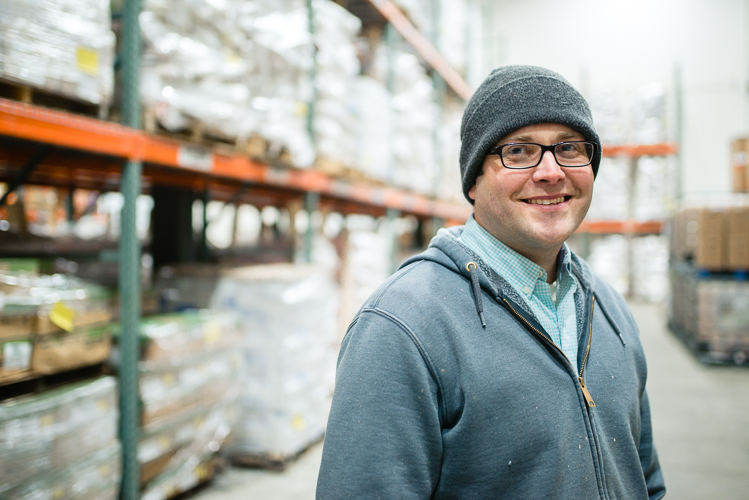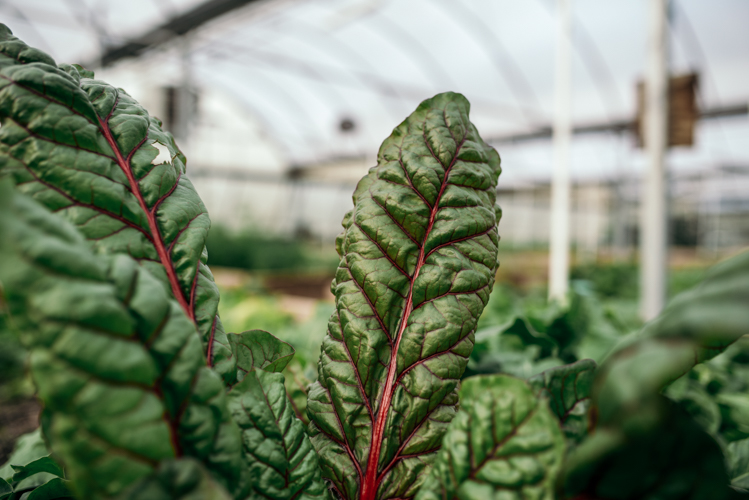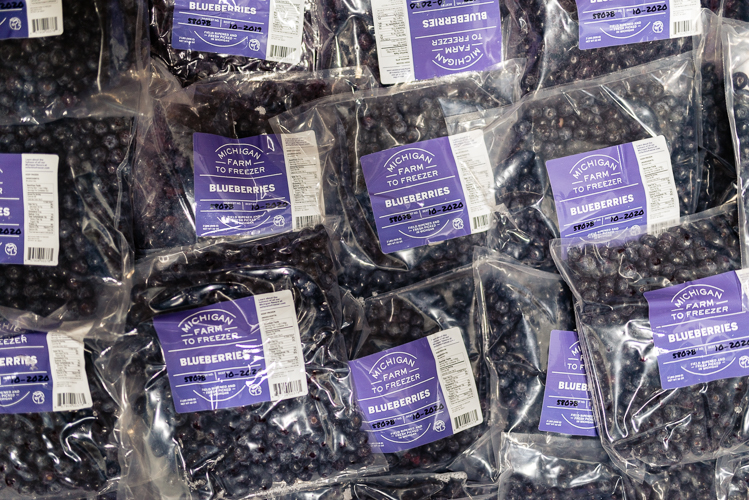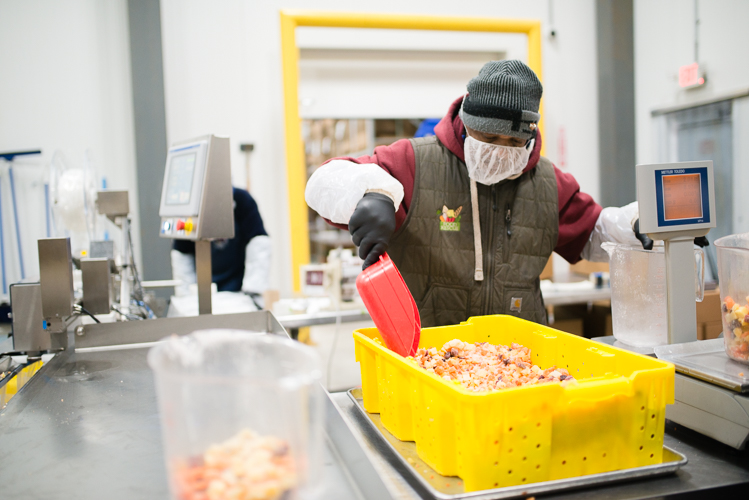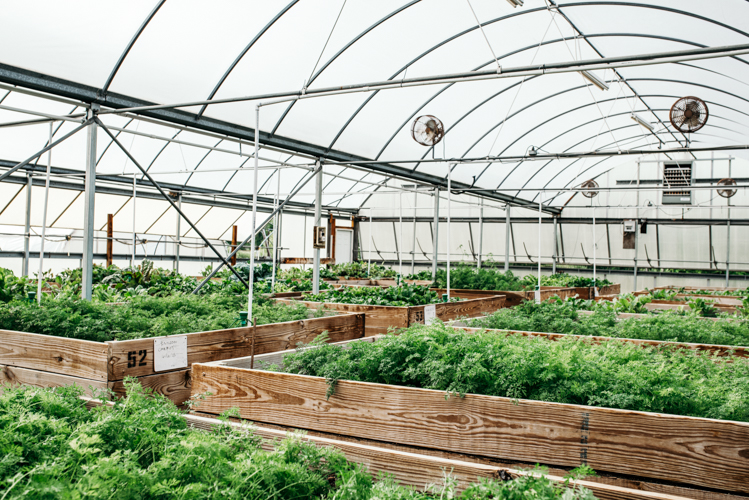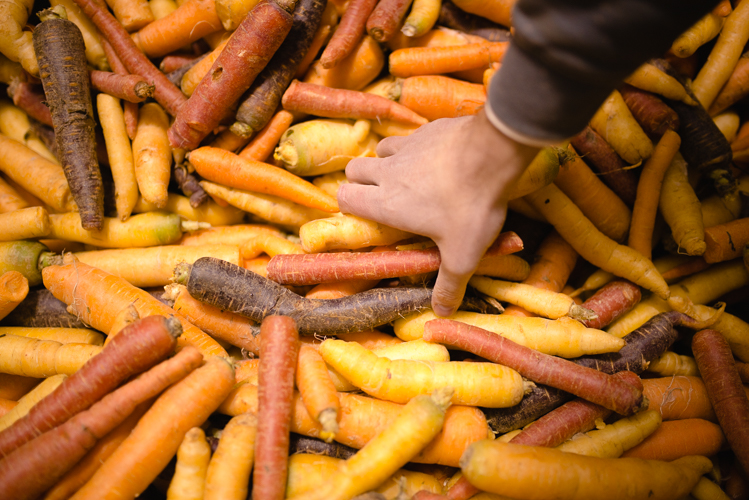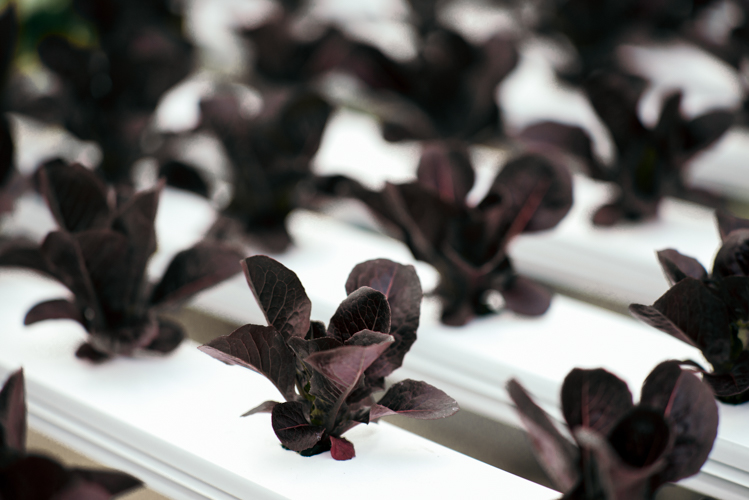Year-round produce cultivates employment, food access, and the economy in Michigan
Innovative methods in growing and preserving Michigan food is boosting the local food economy — and not just during traditional growing seasons.
Brandon Seng started his company Michigan Farm to Freezer when he was running a non-profit that managed school lunch programs in northern Michigan. He remembers one time when a 14-year-old student, after going through the lunch line, said he’s never
“That’s really when I got that gut punch to say we’ve got to do something bigger, we’ve got to do something different,” Seng says. “And we started buying blueberries the next day.”
Along with his business partner Mark Coe, Seng plans to freeze between 1.5 and 2 million pounds of Michigan fruits and vegetables this year with the underlying philosophy that “no one should be raised in this country without knowing what a blueberry tastes like.”
He may have picked a good moment to do so. According to the Nielsen Company, frozen foods are surging in popularity after years of decline because customers appreciate the convenience as well as improvements in the products themselves.
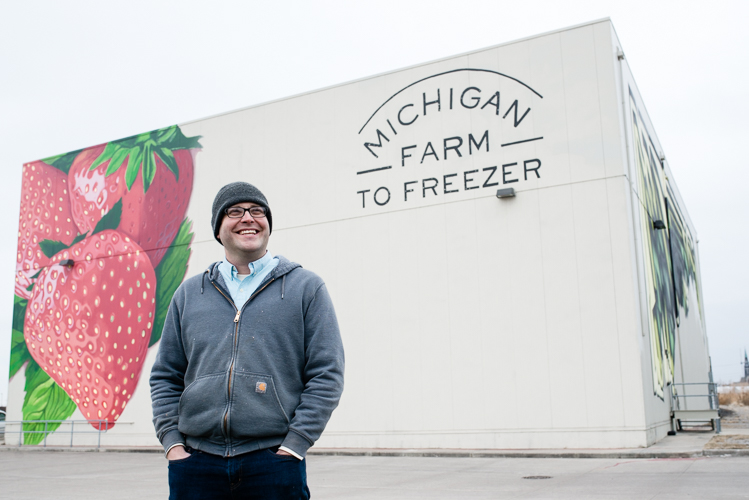
Michigan Farm to Freezer is also capitalizing on consumer demand for locally grown produce, something that it shares with growers who are producing food either under lights or in greenhouses during the winter months, often using hydroponic technology. By either freezing crops at their freshest or delivering them straight from the greenhouse, these businesses are able to compete on quality with winter produce from Mexico, Florida, Arizona or California, which is often harvested under-ripe and spends days in transit.
Together, these developments could be big for Michigan growers who produce the second most diverse array of crops next to California, but were constricted by the short growing season.
“Across the country we’re definitely seeing a huge increase in production of food crops in greenhouses as well as indoor vertical farms,” says Roberto Lopez, a professor of horticulture at Michigan State University.
And customers are willing to pay more for products that are local and taste better. “The strawberries are really, really good compared to what we get from California and Florida,” Lopez says.
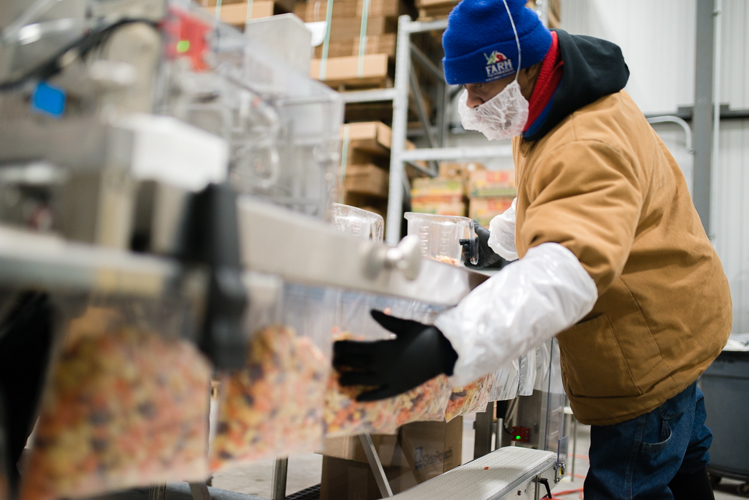
Crop variety for non-traditional growing methods
Growers and consumers are also benefiting from recent advances in things like lighting technology as well as the development of cultivars specifically for hydroponic or greenhouse growing. “You can produce pretty much any crop,” Lopez says, adding, “of course it comes down to the economics.”
Mike Skinner of Oakland Urban Growers is in his second year of trying to figure out the calculus of what to grow and when to grow it on his own indoor farm in Waterford.
“I think it’s getting the right product mix and the right customers,” he says. “It’s sort of like a dating game. You have to get the right people and get them in the right room.”
Finding customers who want what he’s growing when it’s ready is key for ensuring a quality product. “The point is to be ready to harvest right at the peak point,” he says.
So far, Oakland Urban Growers has had success selling to restaurants, wholesalers, and country clubs. They’ve also figured out that lettuce does best in winter, basil in summer, and that tomatoes are a year-round moneymaker as long as they have the heirloom varieties that are unavailable elsewhere. This knowledge has allowed them to grow over their first year and employ several people.
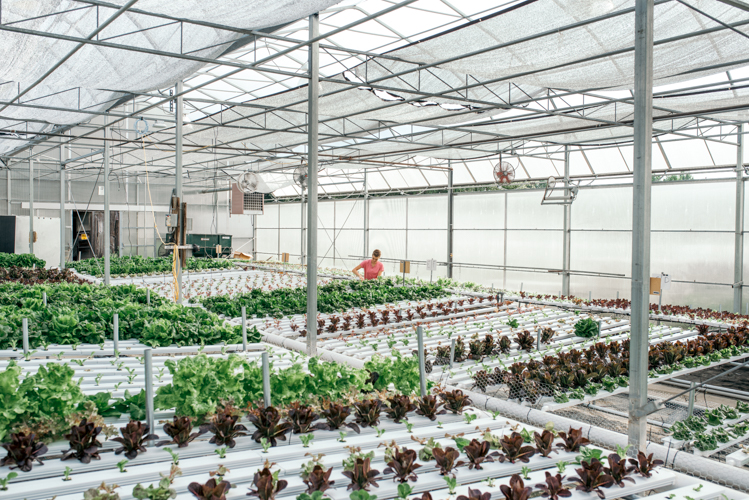
On the frozen food side, Seng is having success selling blueberries, tart cherries, and strawberries. He’s also moving a lot of a root vegetable mix, which he suggests sautéing or roasting – rather than steaming – for flavor and texture, but also to retain nutrients.
Michigan Farm to Freezer is moving forward with a “kitted” line of products that includes oil and seasoning in the case of vegetables or pie fillings made with apples, blueberries or cherries. These offer some of the convenience that customers enjoy with meal delivery service, but sourced from local, Michigan farms.
The quality and innovation that Michigan Farm to Freezer offers has allowed them to grow rapidly over their first year in business. They now employ 12 people – many of them joining the workforce after incarceration – at their Detroit facility and are looking to sell $2 million worth of frozen produce this year, sourced from more than 40 growers.
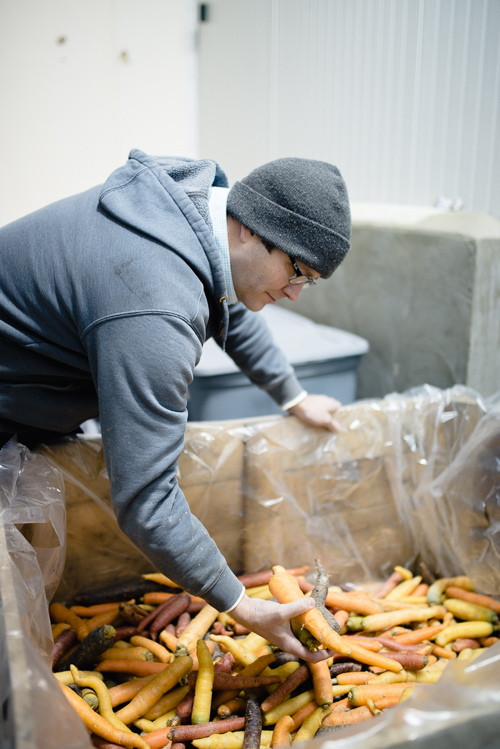
An agricultural talent shortage
One potential roadblock for this growing market, however, is the farm labor needed to harvest the crops that these companies are selling.
Seng says he’s been following proposed changes to the H-2A visa program that allow farm workers to come to the United States. These changes could make it easier for employers to bring in farm workers from outside the country, a perennial issue for Michigan growers.
“It’s a big issue in agriculture, not only in Michigan,” Lopez says, “but across the country, especially in some of these greenhouses. It gets pretty hot in a tomato or a sweet pepper greenhouse.”
He says that certain Michigan growers have tried employing local people to do this work, but, “they just couldn’t. They would last a few days or an hour and then they would quit.”
And yet, with climate change and water issues influencing winter growing in places like Arizona and California, Michigan has every incentive to find the labor and resources it needs to grow its own production, delivering nutritious hydroponic and frozen food in the process.
Furthermore, the market for Michigan grown crops extends well beyond the state’s borders. “We’re within a day’s drive of more than 50 percent of the U.S. Population,” Lopez says, “so that really helps.”
This story is part of “Michigan Good Food Stories” a series that explores access, equity, and sustainability in Michigan’s thriving food economy. This work is made possible by Michigan Good Food and is supported by the W.K. Kellogg Foundation.
Read more in the series here.
Photos by Steve Koss.
